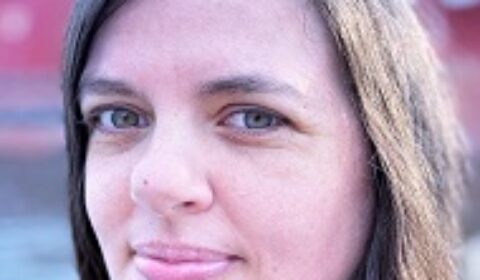SOCIAL MEDIA IS FOR STRANGERS AND REAL LIFE IS FOR FRIENDS
TARA COLLUM | Contributing columnist
A common story is a kid throws a party and no one comes. Even worse are the kids who weren’t even invited to that party.
Now imagine all the pictures of all the parties online so kids can see exactly what they are missing out on. Like the pit parties near the Kilworthy woods being captured on video to live on the internet forever.
The very first time I was on the internet was at the Gravenhurst High School library. Chatrooms, or My Space, and early internet exploration just wasn’t a part of my youth.
When YouTube was first launched, I was a young married woman with a dialup connection, at a speed too slow to watch videos. If I wanted to download songs on iTunes it would take all night.
So I’ve never gotten into YouTube beyond watching music videos or looking up nostalgic TV moments.
I’m unnerved seeing how my nieces and nephews interact with the platform. I remember how sad I was when I watched my nieces passively watching videos of other kids playing. Like, what are you doing! You guys should be playing.
But I also know the peace and quiet of kids who are absorbed in their tablets.
It is sad, though, that kids are missing out on communal experiences like watching TV as a family, or listening to the radio in the kitchen or the car. And instead being in their own world, ubiquitous ear buds jammed in their ears.
Facebook was my first experience with social media and I never liked it. Why broadcast intimate details of your life to IRL (in real life) friends, family and random strangers alike?
The platform itself is a sophisticated piece of surveillance that tracks our movements and harvests and exploits our personal data. The U.S. government can’t even decipher all the ways it makes its billions of dollars in profits.
Facebook’s comment section is trash fire of misinformation, toxic opinions and low-blow arguments. And even well-meaning words can be twisted or misunderstood.
I had a minor epiphany during the pandemic. Social media is for strangers and real life is for friends. If I don’t have a real-life way to contact someone or if I don’t regularly text or talk to them, what is the point of following the goings-on of their daily lives or knowing something about them that they wouldn’t tell you face to face?
I wanted to deactivate my account all together, but decided to keep the parts of Facebook that were useful to me, like groups for job networking and a private group just for my street.
It’s a quaint group that makes me feel a sense of old-fashioned community, where neighbours post stuff they are giving away available for porch pickup. They ask for suggestions on local businesses, post about missing or found pets or ask for favours. Like can anyone print a document or do you have a specific recipe ingredient for trade?
It’s the online equivalent of asking your neighbour for a cup of sugar, something that I thought only happened on old TV shows.
I loathe that they are owned by Facebook, which seems like an unfair monopoly that shouldn’t be allowed.
But I love Instagram. It is simply a clean, uncluttered, curated stream of pictures.
I have two Instagram accounts. One for pictures of walks, which keeps me accountable to going for long strolls and being on the lookout for new places to explore. And a place to share my photography hobby.
Another account is for a corner I stumbled into during the pandemic, Bookstagram. I post only about books and follow only other book accounts. Through this account, I have found book clubs, have had books mailed to me and have found a community with a shared love of reading. It really helped during the isolation of the pandemic.
But even while having a positive experience I had to take a few months off to reassess how often I wanted to post and what I wanted to share.
Tik Tok is an app I downloaded during quarantine. The algorithm very quickly, almost eerily creates a customized FYP (for you page) personalized to your interests.
I’ve seen firsthand footage of the protests in Fairy Creek to protect the old-growth forests and the apocalyptic red sky from the wildfires. I’ve learned about the fishing disputes in Nova Scotia and political unrest around the word, and laughed until my stomach hurt at cat videos.
The talent, creativity, and knowledge of everyday people constantly amaze me, and give me hope for humanity.
Whatever the internet and social media has unleashed, we can’t put it back in the bottle now.
But it is up to us how we use it and how we allow it to shape us.

